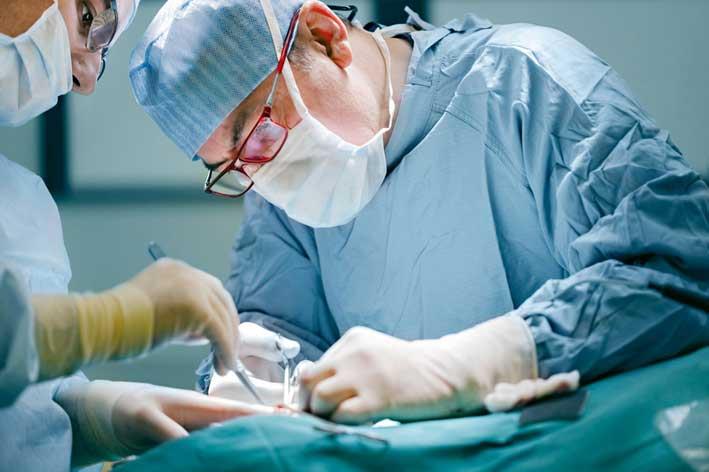While Malta has made huge strides in LGBTIQ laws, there are still some situations which need to be looked into, one being the situation of transgender men - men assigned female at birth but whose gender identity is that of a man - and gynaecologist waiting areas, a place which is typically female.
"The measures taken by transgender males to dodge discomfort in the waiting rooms of gynaecology clinics are quite extreme," PN transgender male Local Councillor Alexander Mangion (below) pointed out to this newspaper when contacted for his opinion about the issue, "such as making appointments in their girlfriend's name or making sure that they are the last patient of the day, to make sure there is no one else in the waiting room."
Malta's milestone laws in LGBTIQ rights, approved in 2015, made it very easy for any transgender individual over the age of 16 to legally change their name. Prior to this law, and as the situation currently is with minors, it used to be very uncomfortable and at times humiliating for transgender males waiting in public waiting rooms to be called for their appointments by their 'birth name', and then stand up in front of everyone present, and make their way to the entrance of the room, having a female name, yet a male appearance.

By simply obtaining a report from a notary, transgender individuals can now legally change their name. This means that, except in the case of minors, the days in which transgender individuals are called out by their birth name are over, as their name matches their appearance and identity. A lacuna, however, is found in the situation of transgender men in gynaecology waiting rooms.
With the cost for gender reassignment surgery being as high as €35,000, as well as the fact that such operations pose a number of health risks, many transgender men do not make it a priority to change their female genitalia into constructed male genitalia. Moreover, for transgender males, trips to a gynaecologist should be even more frequent than usual.
"When you take hormones, there is, in general, probably even more reason to have to go to a gynaecologist than usual," transgender male Alex Caruana explains. "You usually need to have check-ups with hormones. Your period will stop and there is more of a chance that you will have complications, so you need to have regular check-ups".
Alex (top), a 27-year-old environmental activist for Kamp Emerġenza Ambjent and Moviment Graffiti, is also a transgender man, meaning he was born a female, but has now transitioned into a male, and has been taking hormones for the past year and a half to further enhance his masculine physical appearance.
"There will be many people in the waiting room. Sometimes there are the male partners with the women waiting, but it is with the calling out of names where it mostly gets uncomfortable. Even workers sometimes give you 'what are you doing here?' looks; it's just not ideal. There are people who aren't bothered by the situation, of course, but in general you just don't feel comfortable.

"I go to a doctor who specialises in female genital areas now, but who is a doctor, not a gynae, so I don't feel very uncomfortable in the waiting room. My doctor recently tried to find me an appointment with a gynae in light of my hysterectomy, and she told me that she would try to find me one after office hours so I would not have to go through the waiting room experience. But why should this be? This situation should be arranged. "
So what is a possible solution?
"Well, in a utopian world, you would enter these environments and nobody would even look at you, everyone would understand and realise that you are trans. That would be in a utopia," Alex contemplates. "I hope that will happen someday, but I think it will take a few generations." Alex suggests two possible solutions to the problem; the first, a specific time allotment at the public hospital for gynae appointments for transgender males, or the 'ideal solution' which would be a gender clinic.
"In a perfect situation," says Alex, "what we need is a team of professionals working together: psychologist, gynaecologist, psychiatrist and a social worker for whoever needs one. At the moment, transgender individuals see these people individually, where one professional does not link with the next one. The perfect situation would be a gender clinic, like in the UK and the Netherlands, where professionals work as a team."
Questioning whether a specific allocated time for transgender men and a gender clinic might contribute to the idea of segregation, Alex replies: "I don't think it's segregation. I think with allocated times and gender clinics, you would just be creating a safe space." Alexander Mangion backed up Alex's comment by saying: "I wouldn't consider it a negative type of segregation; I would feel most comfortable in that ambience because other transgenders are present."
When asked about the possible creation of such a Gender Clinic, Health Minister Chris Fearne stated that the issue is being discussed on an inter-ministerial level.